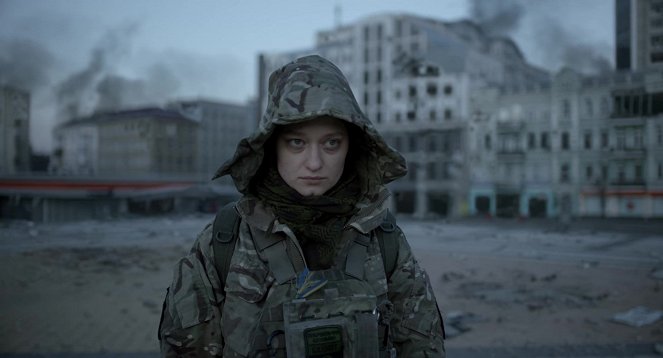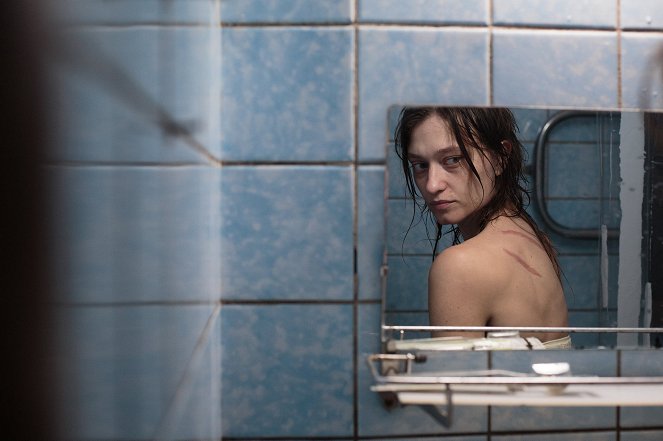Réalisation:
Maksym NakonechnyiPhotographie:
Khrystyna LizogubMusique:
Džian BabanVOD (1)
Résumés(1)
Lilia, une spécialiste en reconnaissance aérienne, retourne auprès de sa famille en Ukraine après plusieurs mois passés en prison dans le Donbass. Le traumatisme de la captivité la tourmente et refait surface sous forme de visions. Quelque chose de profondément ancré en elle l’empêche d’oublier, mais elle refuse de se voir comme une victime et se bat pour se libérer. Le premier long-métrage de Maksym Nakonechnyi apporte un regard fort et d’une grande actualité sur le combat des Ukrainiens et plus particulièrement des femmes qui luttent pour leur intégrité, leur liberté et leur avenir. (Cannes Film Festival)
(plus)Vidéo (1)
Critiques (1)
The heroine of the film is Lilja (Rita Burkovska), a marine who had been held captive by Donetsk separatists and whose view of the world changed irrevocably when she returned home. At the front, she watched her surroundings from the bird's eye view of spy drones; after the horrors she experienced, she feels similarly distant in private. And so is the audience, which has nothing to grasp in this thematic tangle. Nakonechnyi, who introduced Butterfly Vision himself, uses a detached and partly documentary form to polemicise not only about female victims of war crimes, but about Ukraine as such. In his and Lilja's eyes, she’s internally conflicted and full of tension, which leads to tragic personal acts. The inexperienced director, who has only made short films with LGBTQ+ themes, throws a bunch of motifs at the audience based on different perspectives and his film desperately lacks clarity. He’s eager to comment on many issues, and in addition to the moral question of a mother considering aborting a child conceived after being raped by an enemy, he points out, for example, the disrespect of a failed state for its military heroes or the racial strife within the nation. All this is then wrapped up in a frame plot with flashbacks that tell us nothing and end with a short intense montage like in Requiem for a Dream. It's a challenging argumentative film, but it was selected for Cannes mainly for political reasons – it doesn't cut it on its own and leaves an aftertaste of an unfinished and incoherently procedural work.
()


